Army Korean War Orland Park, IL Flight date: 09/21/22
Joseph “Joe” C. Skender was born February 16, 1930, the youngest of six children born to Joseph and Frances Skender. His father had immigrated to the United States from Yugoslavia and settled in Chicago. Joe graduated from Kelly High School and his first employment was at Holland Furnace Company. There he installed the old “octopus” fuel-oil furnaces for residences and businesses. As his skills increased, he took a job with the ABC Oil Burner Company where he installed furnaces and boilers.
Joe was drafted in 1952, reported to Fort Sheridan, and was then sent to Camp Gordon, Georgia, for his eight weeks of Basic Training. While at Camp Gordon, Joe was trained in signal school where he learned radio communications, Morse Code and how to type. “I was pretty good at first learning to type, I actually got up to 25 words per minute!” Joe recalled. Becoming more proficient in the Signal Corps, Joe was sent to Fort Knox, Kentucky, where he instructed and tested officer candidates for radio operations. “I liked that assignment; I was only 300 miles from my home in Chicago, and I could travel during my off-duty time to visit family and friends.” After a short time at Fort Knox, Joe was deployed overseas.
Arriving in Seoul, Korea, he was assigned to the 2nd Signal Corps of the 2nd Division. His unit was in the mountains, northeast of Seoul, in Chuncheon. Located in tents, Joe was stationed primarily in communications. Joe’s main radio was the AN/GRC-9 which could be carried as a backpack, affectionately known as the “Angry 9.” “I used my skills in relaying information, mostly by Morse Code, to the troops,” Joe explained. As Morse Code was common throughout the world, the Army had pre-codes which would prevent interception by the enemy. Pre-codes were changed daily and sometimes multiple times during a day if it was suspected that the North Koreans broke the pre-code. Being in Signal Corps, “I was fortunate in that I never experienced combat or had been under attack where we were stationed,” Joe related.
Besides taking his shifts in the communication tent and instructing other allied units in radio communications, life in the Army during the Korean War could have been a lot worse. There were great meals prepared for holidays, especially on Christmas, “It was quite a feast with Shrimp Cocktail and Roasted Turkey,” Joe explained. The one thing that was missing was hot water! Joe shared that they could heat up small quantities of water for limited use, but the usual bathing was by the local river or in cold water only heated by the sun. “We needed a hot shower without traveling back to headquarters which would take hours.” A team was formed at his camp and Joe, with his experience with furnaces and boilers with their heating element, was placed in charge of improvising a “hot shower” for his camp. Forming a list of items needed, his team began their scavenger hunt for materials to create a hot shower for the camp.
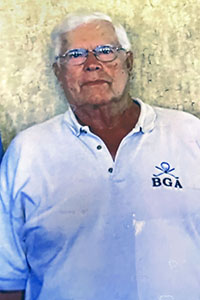
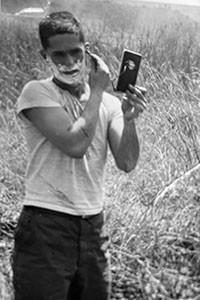
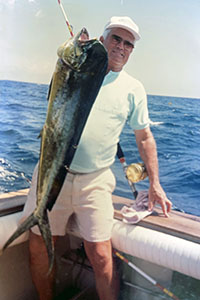
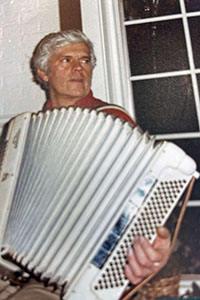
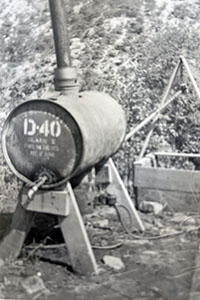
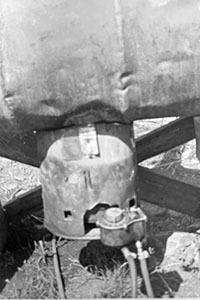
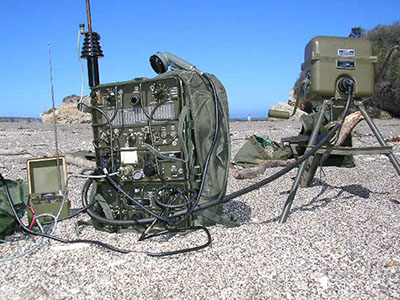
Scavenging a used oil drum, a discarded fuel oil burner, flue pipes and some screws, nuts, bolts and valves, the vision was taking shape. Construction took place on a hillside so gravity could feed the hot water to the shower head. Perching the modified drum to a wooden X-frame, the burner was placed on the bottom of the drum and a sealed chimney, with baffles, was constructed vertically through the middle of the water heater, previously known as an oil drum, for the water to capture more heat. With the plumbing being completed, including a shower stall built on the hillside, testing of the unit was commenced. The water tank was filled, the burner lit and then it was just a waiting game. Eventually, the water was heated, the water flowed and the first hot shower in the field was opened for business in South Korea, with a lot of takers. The shower was used by both officers and enlisted men. Once operational, a wash and shaving station was also constructed where the GIs could carry over hot water from the shower tank. With great ingenuity by Joe and dedicated team members, the 2nd Signal Corps field hot shower was shared with all troops in an article in the Stars and Stripes newspaper.
After a year with 2nd Signal Corps, with only a five-day R&R in Japan, Joe’s tour was completed. Returning to Seoul, his original point of entry, he hit American land in San Francisco and was discharged from the Army in July, 1953. Joe then returned to Chicago, reclaimed his job at the ABC Oil Burner company and began his return to civilian life.
Joe went on to become a union carpenter and started a construction business with his wife, Shirley. “It was love at first sight when Shirley and I were introduced to each other,” Joe stated. Shirley and Joe were married in 1955 and raised a family of 4 children, Terri, Joe, Nancy, and Mark. They have 11 grandchildren, and 9 great-grandchildren so far! Sons Joe and Mark joined Skender Construction Company after college and the company grew exponentially. After Joe’s retirement, his sons continued the family business and a couple of Joe’s grandsons remain with the company. “I was the tools in the business, my sons, now also retired, were the brains that made the company grow and become very successful.”
The patriarch of the Skender Family, Joe is well-loved and appreciated for his constant encouragement and love of his family. His endearing and enduring sense of humor and problem-solving approach to life make every day a new adventure.
Thank you, Joe, for your dedicated service to your country! Enjoy your well-deserved day of honor as a member of the 105th flight of Honor Flight Chicago.


